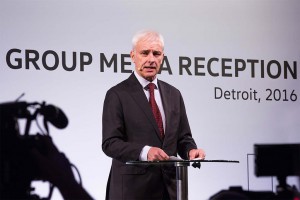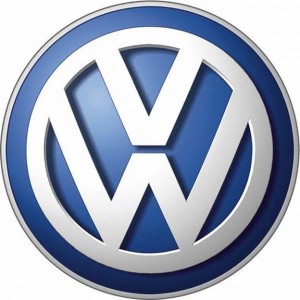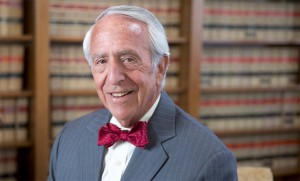After reporting a rosy picture for the first half of 2016, a different reality has set in for Volkswagen AG, the embattled automaker reported today that second-quarter profits fell by more than half year-over-year, largely the result of its ongoing emissions cheating scandal.
The news came just days after a federal judge in California approved a $14.7 billion settlement to resolve the rigging of 475,000 vehicles with 2.0-liter turbodiesels to illegally pass U.S. emissions tests. That expense was largely covered by money set aside against 2015 earnings. But VW still has to settle a number of other lawsuits and solve problems involving its higher-end 3.0-liter diesel.
After taxes, VW said it earned $1.2 billion euros, or $1.32 billion between April and June, down from 2.7 billion euros the year before. On an operating basis, the figure many analysts prefer to focus on, the impact was less severe, though down 12%, nonetheless, at 808 million euros, or $895.5 million, compared with 914 million euros during the period a year ago.
(VW initially projects good news for the first half of 2016. Click Here for that story.)
From his standpoint, VWAG CEO Matthias Mueller tried to put a positive spin on the results, noting in a statement that, “Particularly in light of the current special items, we can be satisfied with our results for the first half-year.”
But Frank Witter, the Group’s chief financial officer, added a more stark analysis, stating, “It will require continued hard work to absorb the significant impact from the diesel issue.”

VW CEO Matthias Mueller tried to put a positive spin on the maker's disappointing quarterly results.
All told, VW acknowledges it rigged 11 million 2.0-liter diesel vehicles around the world to make it look like they complied with emissions laws when being tested. But, in real-world conditions, they produce up to 40 times more smog-causing oxides of nitrogen. About 475,000 of those vehicles, including the likes of the Volkswagen Golf TDI and Audi A3, were sold in the U.S.
Another 85,000 models, such as the Porsche Cayenne diesel, were sold in the States using the 3.0-liter engine. VW has been trying to work up a settlement for that issue, as well, and is hoping to avoid the vehicle buyback program that accounts for more than $10 billion of the $14.7 billion deal approved Tuesday by U.S. District Court Judge Charles Breyer in San Francisco.
During the first quarter of this year, VW’s profits plunged 86%, and most observers anticipate the financial impact will continue to be felt for some time. The maker also remains a target of criminal investigations in the U.S. and Germany.
(Click Here for details about VW’s $14.7 billion settlement.)
The longer-term cost of the cheating scandal can be seen in the second-quarter earnings. Before the revelations made by the U.S. Environmental Protection Agency last September, the automaker appeared en route to becoming the world’s largest car manufacturer by volume. Sales have slowed sharply since then. A double-digit decline in the U.S. in large part reflects the lack of availability of the diesel models that once accounted for about a quarter of the Volkswagen brand’s total volume.
Commerzbank analyst Sascha Gommel called the results of the second quarter, “mediocre,” especially for the Volkswagen brand itself, which has been harder hit than either the Audi and Porsche marques which also use some of the tainted engines.
Along with having to pay for various settlements and costs connected with the diesel scandal, the Volkswagen Group will be investing heavily in the years ahead to shift away from the diesels that were mainstays of the company’s automotive line-up. It now plans to launch about 30 plug-based models over the next decade.
Audi’s own CEO Rupert Stadler this past week said that the marque will likely have to drop some of its weaker models to shift funds to developing the three pure battery-electric offerings it will launch by 2020. The first of those, the Audi Q6 e-tron, will reach market by 2018.
(For more on Audi’s battery-car plans, Click Here.)


